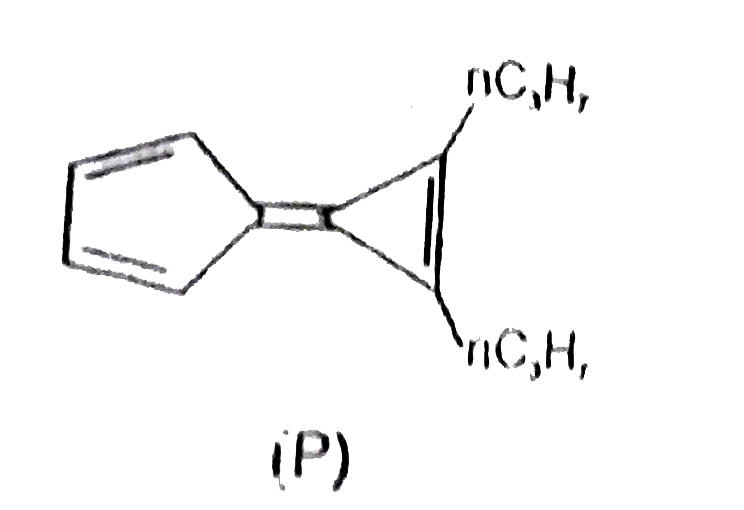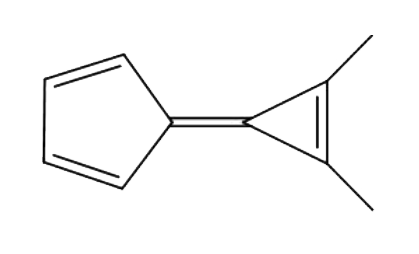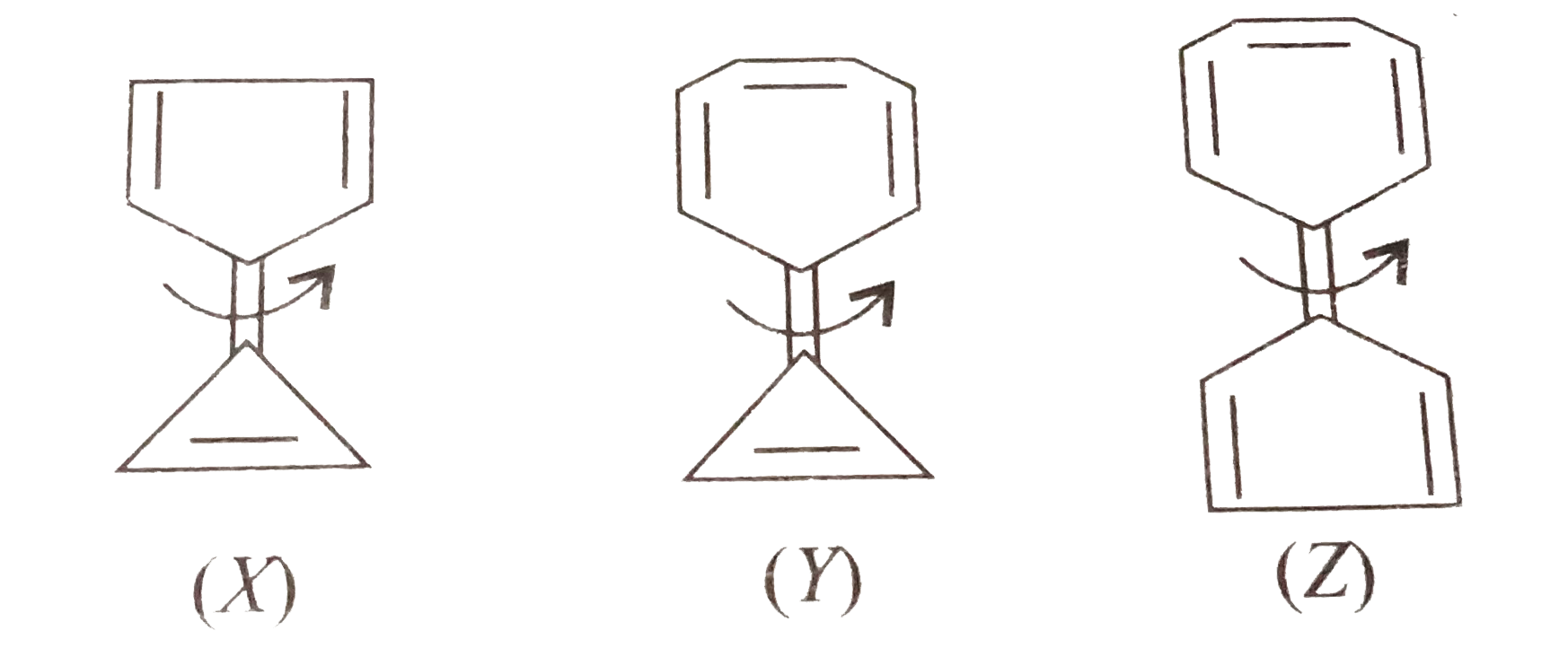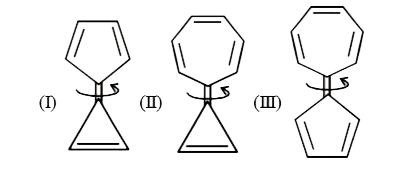Ordinarily the barrier to rotation about a carbon-carbon double bond is quite high but in compound P double bond between two rings was observed by NMR to have a rotational energy barrier of only about 20 cal/mol

The reason for this is
A
Double bond having partial triple bond character because of resonance
B
Double bond undergo flipping
C
Double bond having very high single bond character because of aromaticity gained in both three and five membered rings.
D
+l effect of nC3H7 groups makes double bond having partial single bond character
Video Solution
Text Solution
The correct Answer is:C
|
Updated on:21/07/2023
Topper's Solved these Questions
Similar Questions
Knowledge Check
- Question 1 - Select One
Ordinarily the barrier to rotation about a carbon - carbon double bond is quite high but in compound P double bond between two rings was observed by NMR to have a rotational energy barrier of only about 20 cal/mol., showing that it has lot of single bond character.

The reason for this isADouble bond having partial triple bond character because of resonanceBDouble bond undergoes flippingCDouble bond having very high single bond character because of aromaticity gained in both three and five membered rings.D+I effect of nC3H7 groups makes double bond having partial single bond character. - Question 2 - Select One
The restricted rotation about carbon-carbon double bond in 2-butene is due to
AOverlap of two p-orbitalBOvelap of one p and one sp2-hybridized orbitalsCOverlap of two sp2-hybridized orbitalsDOverlap of one s and one sp2 hybridized orbitals - Question 3 - Select One
Which of the following will have the least hindered rotation about carbon-carbon bonds?
AEthaneBEthyleneCEthyneDHexachloroethane
The barrier for rotation about indicated bonds will be maximum in which of these compounds?
 View Solution
View Solution
The barrier for rotation about the indicated bonds
Will be maximum in which of these three compounds ?View SolutionWhich of the following will have least hindered rotation about carbon-carbon bond ?
View SolutionThe double bond between the two carbon atoms in ethylene consists of
View SolutionWhich of the following will have least hindered rotation about carbon-carbon bond?
View Solution

